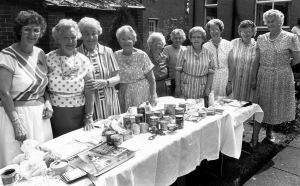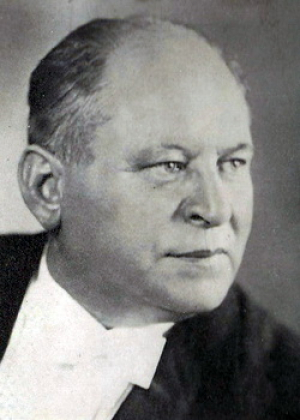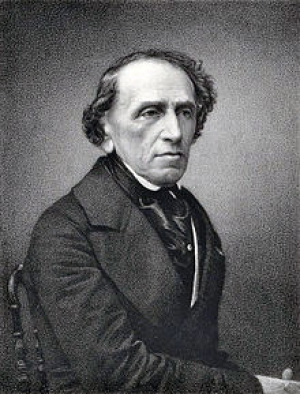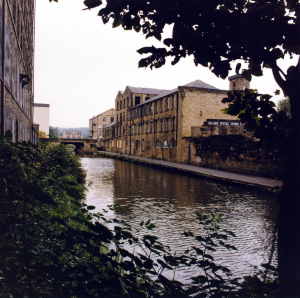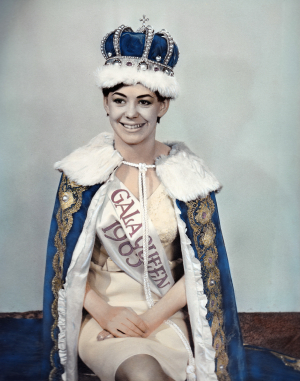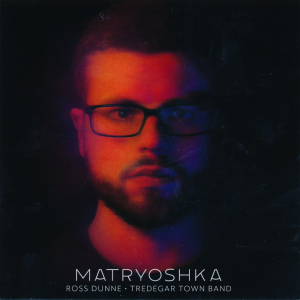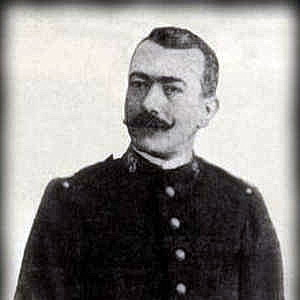
Chris Helme
It was announced on Sky Business news this morning that more branches of the Spanish owned Santander Bank are set to close. The reasons given by the bank are owing to the changes in customer behaviour since the start of the pandemic. The bank also said that most of those affected are less than three miles from another Santander branch. All its current and business account holders can continue to bank at 11,000 Post Office branches nationwide.
Amongst the seven in West Yorkshire to close is the Santander Bank office in Brighouse. This will close on July 21, 2021 and will inevitably leave a big gap on Commercial Street. Following other bank closures over the last couple of years the number of banks in Brighouse are disappearing very fast.
Here are some members of the Bailiff Bridge Townswomen's Guild at their summer meeting on July 17, 1990. Sadly, this and like many other T&G's had to close down. As members were all getting older and not able to attend meetings on a regular basis or they may have passed away. The membership numbers were reduced to such a small group it was no longer a viable Guild anymore. This meant that as the Guild officials were also getting older as well and no one taking on what I refer to a 'top table job', it was inevitable the Guild had to close.
Hermann Ludwig Blankenburg (14 November 1876 – 15 May 1956 was a German composer of military marches.
He was born with the middle name Louis but changed it to Ludwig later in life perhaps as a connection to Beethoven. He was raised on a sheep farm and was expected to someday manage the farm. However, he showed a propensity for music starting with performing on the piccolo - a favourite instrument his entire life. His family agreed on his studying music as long as he promised to serve in the army for 12 years.
He taught himself to play various instruments including bassoon, tuba, and violin and he conducted his school orchestra at the age of 10. He served actively in the military for two years 1896-1898, performing tuba in the band of the 6th Field Artillery Regiment in Breslau. After that, his only service was prior to and during the early years of World War I in reserve bands. In 1913 he performed tuba in Field Artillery Regiment No. 43 in Wesel until 1915 when he got a medical discharge.
He played in and conducted community bands as well as performing in the orchestras in Dortmund, Wuppertal, and Duisburg. He also worked as a bricklayer and a policeman for a short time. His personal life was full of turmoil. In 1917 he was arrested by the military police from his former regiment for "deserting his family". He married Magdalena Weidmann in 1898. In 1920 he married Käthe Trauthoff and was then arrested for bigamy.
In 1904, a march he had written years before was submitted to a Hawkes & Son march competition. His was chosen as the winner, from over 500 submitted, with the proviso the title be changed from ‘Germany's Princes to ‘The Gladiators' Farewell. The march became popular, and Hawkes (also Boosey & Hawkes) would publish several more.
A few months before his 81st birthday, he intended to compose another march, but he died in 1956 before completing the piece. He wrote over 300 marches and over 100 of those have been recorded. In this show we are featuring his 'Flying Eagle' march which was published in 1914.
The building in the fore-ground of this view at the top of Mill Lane is the solicitor's office Rice Jones and Smiths. The archway to the left of the office led through a passageway into what was Baines Row and beyond that took you into the Victoria Mills complex. These mills dated back into the nineteenth century and brought prosperity to the town and an abundance of jobs for local people and many living beyond the town. The Under Offer sign to the right of the photo gives a clue as to what was to come later. The site was sold and today it is where Sainsbury's Supermarket is. (Photograph and copyright courtesy of G, Foster).
Giacomo Meyerbeer (born Jacob Liebmann Beer; 5 September 1791 – 2 May 1864) was a German opera composer of Jewish birth and the most frequently performed opera composer during the nineteenth century.
With his 1831 opera Robert le Diable and its successors, he gave the genre of grand opera 'decisive character'. His grand opera style was achieved by his merging of German orchestra style with Italian vocal tradition. These were employed in the context of sensational and melodramatic libretti created by Eugène Scribe and were enhanced by the up-to-date theatre technology of the Paris Opéra. They set a standard which helped to maintain Paris as the opera capital of the nineteenth century.
Born to a very wealthy Berlin family, Meyerbeer began his musical career as a pianist but soon decided to devote himself to opera, spending several years in Italy studying and composing.
At the same time as his successes in Paris, Meyerbeer, as a Prussian Court Director of Music from 1832, and from 1843 as Prussian General Music Director, was also influential in opera in Berlin and throughout Germany.
Apart from around 50 songs, Meyerbeer wrote little except for the stage. The critical assaults of Wagner and his supporters, especially after Meyerbeer’s death, led to a decline in the popularity of his works; his operas were suppressed by the Nazi regime in Germany, and were neglected by opera houses through most of the twentieth century. In the 21st century, however, the composer's major French grand operas have started to reappear in the repertory of numerous European opera houses.
He died in Paris on 2 May 1864. Rossini, who, not having heard the news, came to his apartment the next day intending to meet him, was shocked and fainted. A special train bore Meyerbeer's body from to Berlin on 6 May, where he was buried in the family vault.
We are opening this show with his Coronation March from his 1849 opera Le Prophet.
It is also interesting looking back at the early September Contest, which is now the British Open and the early test pieces. There are several which are arrangements from Meyerbeer's operas. The earliest one is Selections from L' Africaine in 1866, followed by Robert De Diable in 1868 and then Le prophet arranged by William Winterbottom in 1869, Dinorah arranged by Charles Godfrey for the 1873 contest. In 1887 Charles Godfrey also arranged the test piece L'Etoile du Nord
For the 1911, National Brass Band Championships Meyerbeer's work Les Huguenots was the test piece. This was his last work used at the two big contests of the time.
An every day scene on the canal. There have been many changes to properties alongside the canal. Whilst some do remain, the buildings in the town centre have either been demolished or redeveloped. The properties on the right side have all been demolished to make way for the Sainsbury Supermarket, whilst the property on the left is now the Millroyd Apartments. (Photograph courtesy of G. Foster)
Not a Brass Bands England member yet? The organisation has issued a call-out for views and opinions from the wider banding sector. And it’s your chance to win yourself a free membership.
If you currently play in a band or are a part of the brass band community but aren’t currently a BBE member, you can complete the short survey to share your needs and wishes from a representative banding body for England.
For members who wish to share their views, a separate questionnaire has already been circulated to the main contact at each member band.
Kenny Crookston, Chief Executive Officer of Brass Bands England said:
“It’s really important that we as the representative body for bands in England continue to consult with the wider brass banding sector, not just our current members. We aim to provide value both to current members and those still considering joining us while remaining affordable and accessible in everything we offer. This survey will help us to continue to do that in the most effective ways possible.”
Surveys completed before the deadline of Friday 2 April 2021 will be entered into a prize draw, the winner of which will receive an Individual BBE Membership worth £25.
Complete the survey at bbe.band/survey.
The Brighouse and District Heritage Newseum quarterly magazine is now at its 3rd Anniversary (number 12). The magazine is widely available in and around Brighouse shops and can also be purchased through the online shop on this website. It is also available through me as the magazine editor by telephoning 07854-755756 or 01422 - 205763. In an earlier magazine we told the story of the first Brighouse Charity Gala Queen Judi Pilling, who was crowned in 1965. She shares her story of that big day and where life has taken her since that memorable period in her life.
Alfredo Javaloyes López was born on March 22, 1865 in Elche (Alicante, Spain), on a street that today bears his name. At the age of 15, he went to Barcelona to study music.
He was a violinist until a tram accident disabled his left hand. He had the support of his teacher, Felipe Pedrell, and returned to Elche where he directed the La Escala Music Band.
In 1897, he was appointed the Director of Music for the Sevilla 33 Regiment in Cartagena. In 1918 and assigned to the Barbastro Hunters Battalion No. 4 of the garrison in Tetouan. He retired in 1928 and returned to Elche as Director of the Municipal Band. He died in that city on February 18, 1944.
Among the many pieces that he composed, there are several processional marches, and the well-known pasodoble "El Abanico", composed in 1898, and which was so popular that even the Royal Grenadier Guards Regiment in London made it their own anthem.
Today, we are featuring ‘El Abanico’ with the Massed Bands BMC, Fairey's and Foden's MD: Harry Mortimer in 1966.
Talks Available
All the presentations are timed to last up to an hour except where shown - questions are gladly taken after the presentation. All have been presented to male, female and mixed audiences of varying age groups.
-
A Postcard from the Past
The Sunny Vale Pleasure Gardens, Halifax - Yorkshire’s Alton Towers of the…
-
All in a Days Work
Reminiscences from 30 years in the Police Service – (humorous lecture presentation)…
-
Legends from the world of Brass Bands
(Info-tainment – digital slides & music) – 1 hour presentation.
-
A Week in May
A story based on the Murder of Lord Frederick Cavendish (of the…
- Memories of Christmas Past
-
The Road to Publication
In 1979 I was asked to assist in presenting a series of…
- Holiday Memories from the Past
-
How we used to live
We have all seen and experienced changes in our lives. Bring back…
-
Other Folks Rubbish (Not suited to a Zoom presentation)
With a local history theme… – (thought provoking humorous lecture presentation) –…
- So you want to be a Pirate ? - The life of a Pirate was not all that it seemed
- Superstitions, New Year Resolutions and the Origins of St Valentine's Day
- Brighouse at Work
-
Sorry but I am not able to accept any more face to face talk bookings at the present time ONLY ZOOM TALKS



